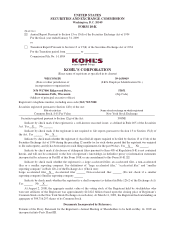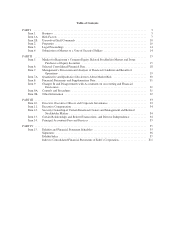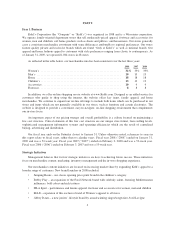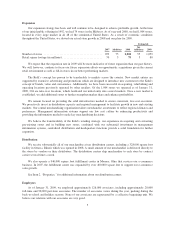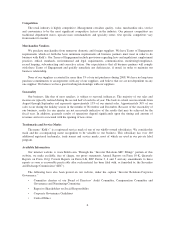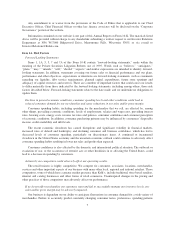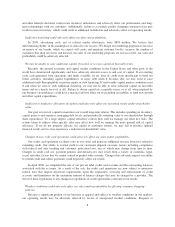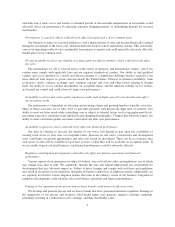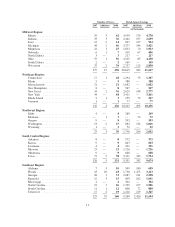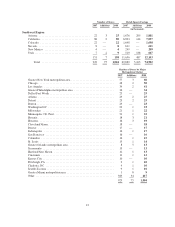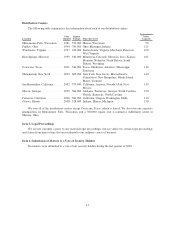Kohl's 2008 Annual Report Download - page 8
Download and view the complete annual report
Please find page 8 of the 2008 Kohl's annual report below. You can navigate through the pages in the report by either clicking on the pages listed below, or by using the keyword search tool below to find specific information within the annual report.and other lifestyle decisions could create inventory imbalances and adversely affect our performance and long-
term relationships with our customers. Additionally, failure to accurately predict changing consumer tastes may
result in excess inventory, which could result in additional markdowns and adversely affect our operating results.
Ineffective marketing could adversely affect our sales and profitability.
In 2008, advertising costs, net of related vendor allowances, were $890 million. We believe that
differentiating Kohls’ in the marketplace is critical to our success. We design our marketing programs to increase
awareness of our brands, which we expect will create and maintain customer loyalty, increase the number of
customers that shop our stores and increase our sales. If our marketing programs are not successful, our sales and
profitability could be adversely affected.
We may be unable to raise additional capital, if needed, or to raise capital on favorable terms.
Recently, the general economic and capital market conditions in the United States and other parts of the
world have deteriorated significantly and have adversely affected access to and cost of capital. If our existing
cash, cash generated from operations and funds available on our lines of credit were insufficient to fund our
future activities, including capital expenditures, or repay debt when it becomes due, we may need to raise
additional funds through public or private equity or debt financing. If unfavorable capital market conditions exist
if and when we were to seek additional financing, we may not be able to raise sufficient capital on favorable
terms and on a timely basis (if at all). Failure to obtain capital on acceptable terms, or at all, when required by
our business circumstances could have a material adverse effect on us including an inability to fund new growth
and other capital expenditures.
Inefficient or ineffective allocation of capital could adversely affect our operating results and/or shareholder
value.
Our goal is to invest capital to maximize our overall long-term returns. This includes spending on inventory,
capital projects and expenses, managing debt levels, and periodically returning value to our shareholders through
share repurchases. To a large degree, capital efficiency reflects how well we manage our other key risks. The
actions taken to address other specific risks may affect how well we manage the more general risk of capital
efficiency. If we do not properly allocate our capital to maximize returns, we may fail to produce optimal
financial results and we may experience a reduction in shareholder value.
Changes in our credit card operations could adversely affect our sales and/or profitability.
Our credit card operations facilitate sales in our stores and generate additional revenue from fees related to
extending credit. Our ability to extend credit to our customers depends on many factors including compliance
with federal and state banking and consumer protection laws, any of which may change from time to time.
Changes in credit card use, payment patterns and default rates may result from a variety of economic, legal,
social and other factors that we cannot control or predict with certainty. Changes that adversely impact our ability
to extend credit and collect payments could negatively affect our results.
In April 2006, we completed the sale of our private label credit card accounts and the outstanding balances
associated with the accounts. As a result of the sale, the credit card operations are now subject to numerous
federal laws that impose disclosure requirements upon the origination, servicing and enforcement of credit
accounts and limitations on the maximum amount of finance charges that may be charged by a provider. The
effect of these regulations or any changes in regulations of credit agreements could affect our results.
Weather conditions could adversely affect our sales and/or profitability by affecting consumer shopping
patterns.
Because a significant portion of our business is apparel and subject to weather conditions in our markets,
our operating results may be adversely affected by severe or unexpected weather conditions. Frequent or
8

